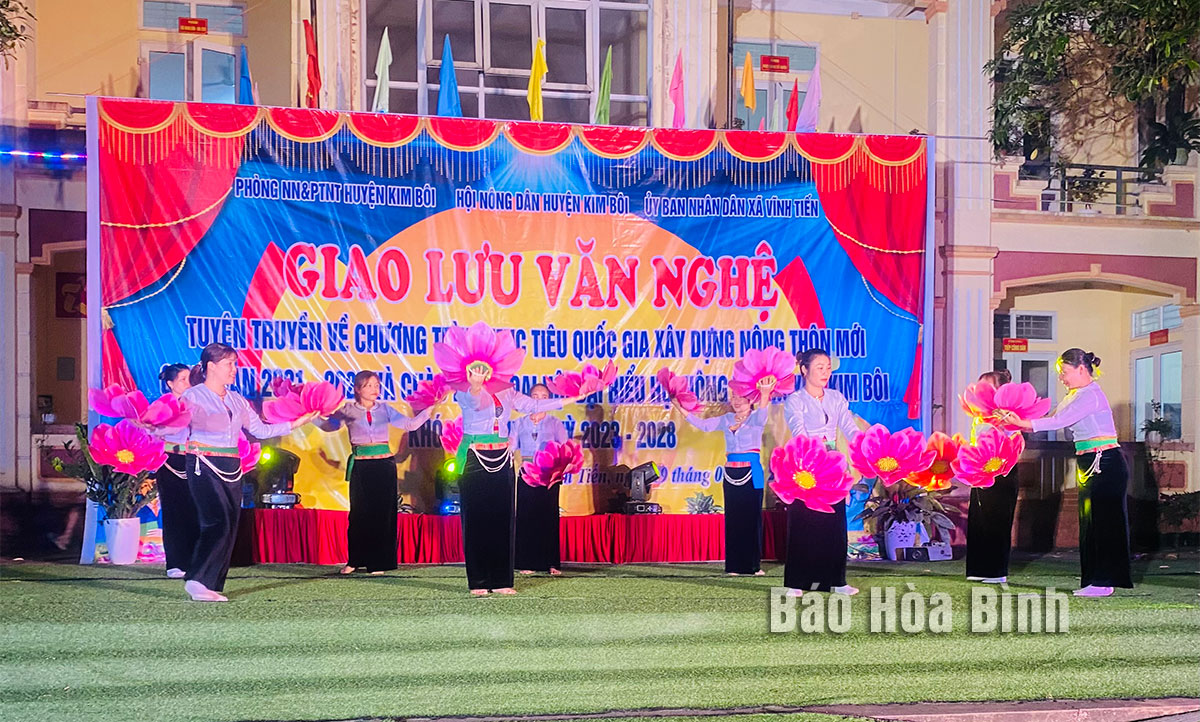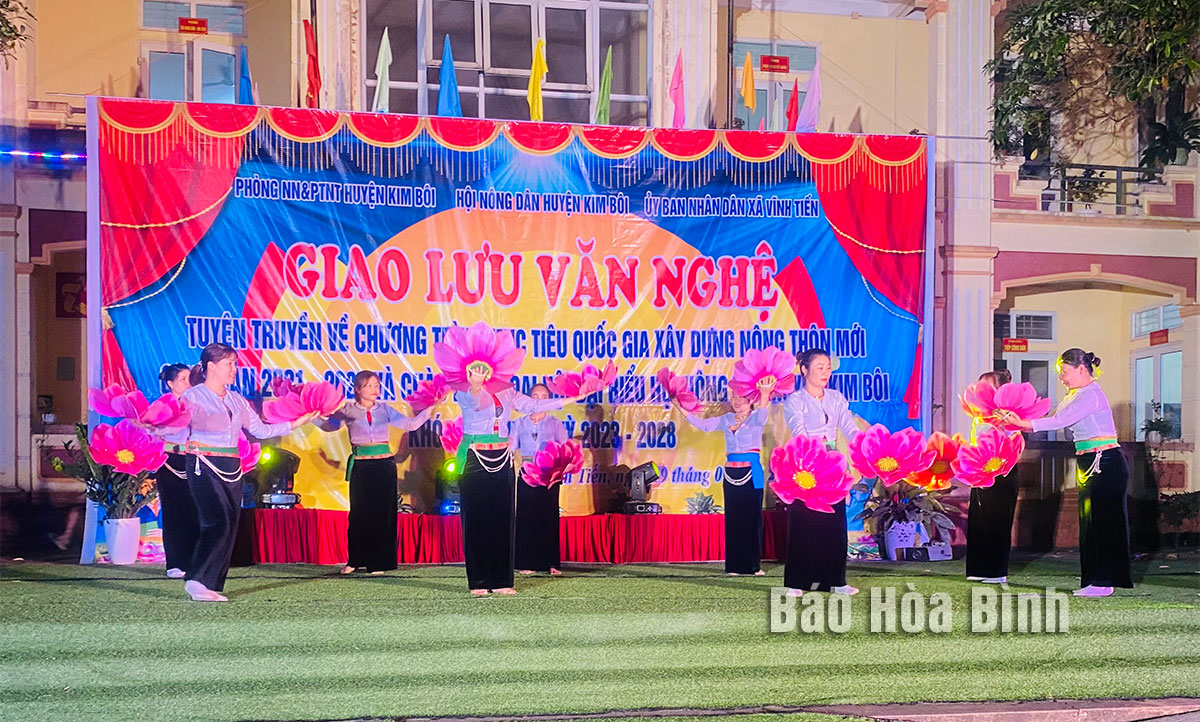
In recent years, the movement of mass culture and arts in Kim Boi district has been maintained and developed, contributing to preserving and promoting traditional cultural values and building a cultural life at the grassroots level.

An art troupe of Thao Ca hamlet, Vinh Tien commune (Kim
Boi district) performs to popularise the National Target Programme on New-style
Rural Area Building.
As a rule, every
day evening, the members of the mass art performance team of Thao Ca hamlet, in
Vinh Tien commune gather at the communal house of the hamlet to practice and
rehearse music.
Kim Boi district has 158 art performance teams with more than 5,000 members.
Each team has an average of 10 key actors, including amateur actors, the
elderly, and youth union members, and young people. Even though they are busy, members of the performance teams always arrange
their work to practice together.
In addition to the supported finance, most teams voluntarily contribute funds
to equipment and costumes serving their performance. They join performance
activities at the grassroots level and cultural and art programmes of the
district and the province.
Last year, the grassroots mass arts team of Kim Boi district coordinated with
the provincial Ethnic Arts Troupe and the provincial Culture and Cinema Centre
to organise five mobile performance programmes in Cuoi Ha, Nuong Dam, Kim Boi,
Hop Tien and Du Sang communes to popularise the Party's guidelines, the State’s
policies and laws, and local regulations related social evil prevention.
The district also successfully organised the district-level popularisation
contest, with the participation of 467 actors, actresses and artisans from all
the 17 communes and towns of the district.
Nguyen Thanh Ha, head of the culture and information office of Kim Boi
district, said to create favourable conditions for mass arts performance teams
to develop and operate effectively, Kim Boi district has focused on developing
its facilities cultural institutions.
Many cultural houses in villages and residential areas have been newly built with
halls and stages equipped with lighting and sound systems, and basic auxiliary
equipment to meet the practice and performance requirements of art teams. The district's culture and information office has also regularly coordinated to
organise mass art shows, creating a healthy playground for art teams.
The widespread mass arts movement not only contributes to improving the
cultural and spiritual life of the people but also helps promote solidarity
among local residents.
With an increasingly vibrant and widespread emulation movement aimed at building cultured residential areas and cultured families, Yen Thuy District has been making steady progress toward improving both the material and spiritual well-being of its people, while fostering a civilized, prosperous, beautiful, and progressive community.
Once lacking recreational spaces and community facilities, Residential Group 2 in Quynh Lam Ward (Hoa Binh City) has recently received attention for the construction of a new, spacious, and fully equipped cultural house. The project followed the model of state support combined with public contributions in both labor and funding.
The "All people unite to build cultural life" movement, which has been effectively integrated with Kim Boi district’s socio-economic development goals, is fostering a lively spirit of emulation across local residential areas, hamlets, villages, public agencies, and enterprises. In addition, through the initiative, traditional cultural values are being preserved and promoted, while community solidarity and mutual support in poverty reduction and economic development are being strengthened.
A working delegation of the Hoa Binh provincial People’s Committee led by its Permanent Vice Chairman Nguyen Van Toan on June 11 inspected the progress of a project to build the Mo Muong Cultural Heritage Conservation Space linked to tourism services in Hop Phong commune, Cao Phong district.
Born and growing in the heroic land of Muong Dong, Dinh Thi Kieu Dung, a resident in Bo town of Kim Boi district, in her childhood was nurtured by the sweet lullabies of her grandmother and mother. These melodies deeply imprinted on her soul, becoming an inseparable part of her love for her ethnic group's culture. For over 20 years, this love for her hometown has driven Dung to research, collect, and pass down the cultural values of the Muong people to future generations.
In the final days of May, the Ethnic Art Troupe of Hoa Binh Province organized performances to serve the people in remote, mountainous, and particularly disadvantaged areas within the province. These were not just ordinary artistic shows, but they were the meaningful journeys aimed at spreading cultural values, enhancing the spiritual life of the people and contributing to the preservation of ethnic minority cultural identities.



